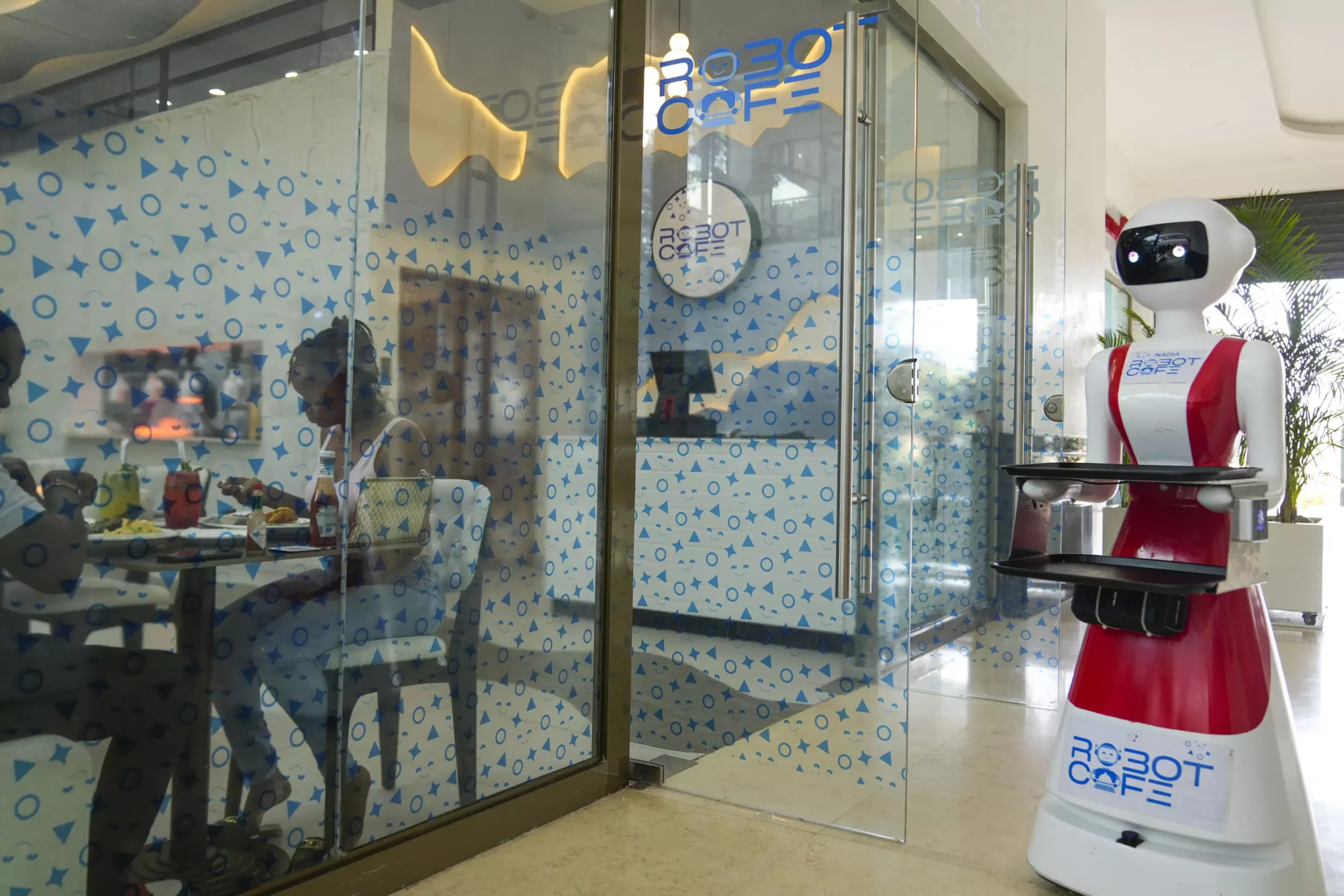In Nairobi, Kenya, a Robot Cafe has opened its doors, marking a new era in the hospitality industry. The cafe, equipped with three robots named Claire, R24, and Nadia, is a unique establishment that showcases the intersection of technology and food service. With the aim to provide entertainment and a novel experience for diners, the Robot Cafe has become a popular spot in the bustling capital.
Owner Mohammed Abbas took inspiration from his travels to Asian and European countries, where he first experienced robot service in restaurants. Despite the high cost of importing the robots, Abbas believed that investing in this technology would set his cafe apart from others. Indeed, the Robot Cafe has become a hub for curious customers, eager to witness the robots in action.
While the robots at the cafe can carry plates of food and interact with customers to a certain extent, human waiters still play a crucial role in the operations. They take orders, ensure that food is placed on the robot trays, and provide a personal touch by delivering drinks in person. This balance between technology and human interaction highlights the potential for coexistence between robotics and traditional service in the hospitality industry.
As automation and robotics continue to advance, there is a growing concern about the impact on the future workforce. In Africa, where there is a youthful population with a median age of 19 years, the introduction of robots in industries like hospitality can be seen as a potential threat to human labor. However, the manager of the Robot Cafe, John Kariuki, emphasizes that robots are not a substitute for human workers. He points out that the robots are expensive to acquire and that they are unable to perform all the tasks required for smooth restaurant operations.
Hospitality industry expert Edith Ojwang acknowledges that there is a place for both robotic and human service in the industry. She highlights the diversity of clients, some of whom may prefer the efficiency of robotic service, while others value the human touch and warmth that comes with human interaction. Ojwang’s perspective underscores the importance of finding a balance between technology and tradition in order to meet the varying needs of customers.
The Robot Cafe in Nairobi offers a glimpse into the future of the hospitality industry, where robots and human workers can coexist harmoniously. While the introduction of robotics may raise concerns about the displacement of human labor, it also presents opportunities for innovation and enhanced customer experiences. By embracing technology while retaining the personal touch of human interaction, the hospitality industry can continue to evolve and adapt to meet the changing demands of consumers.


Leave a Reply